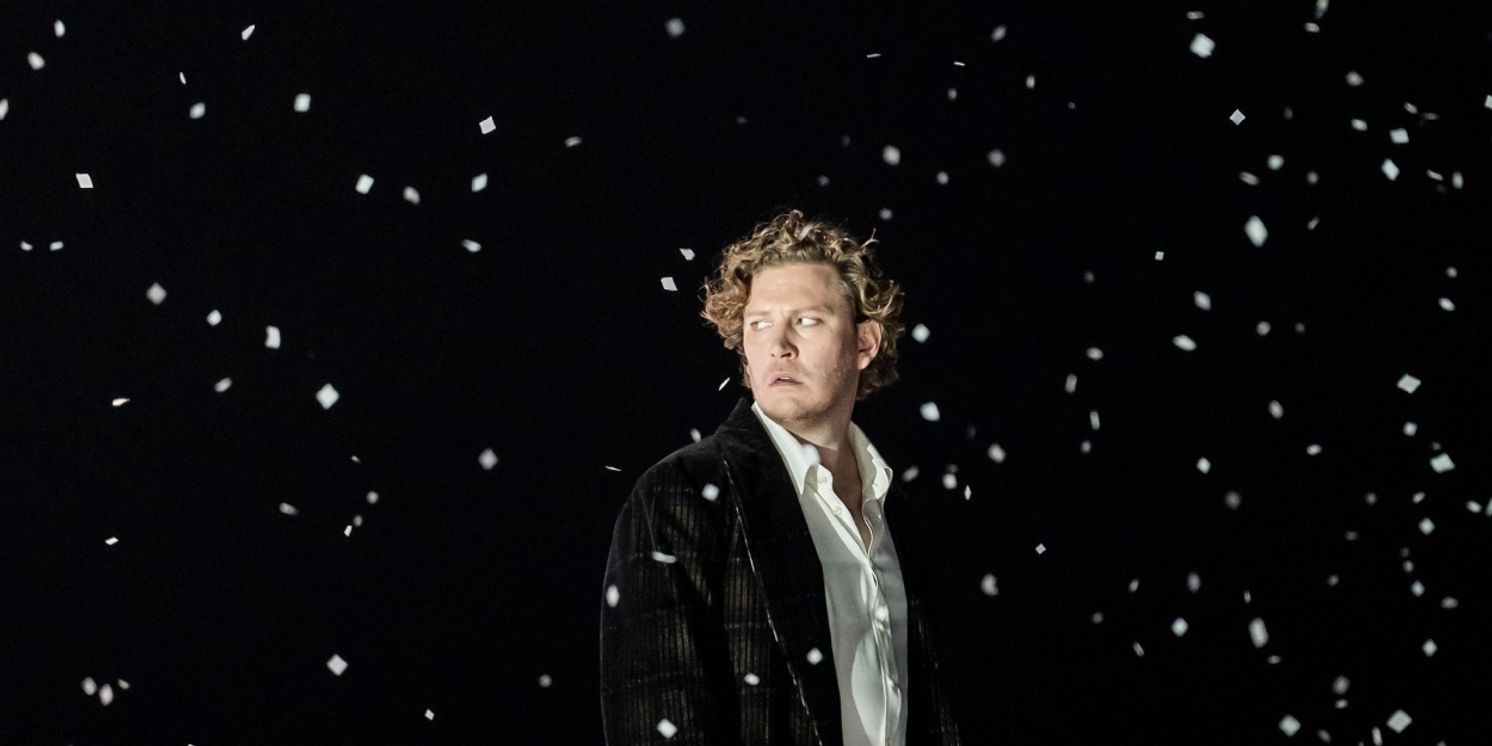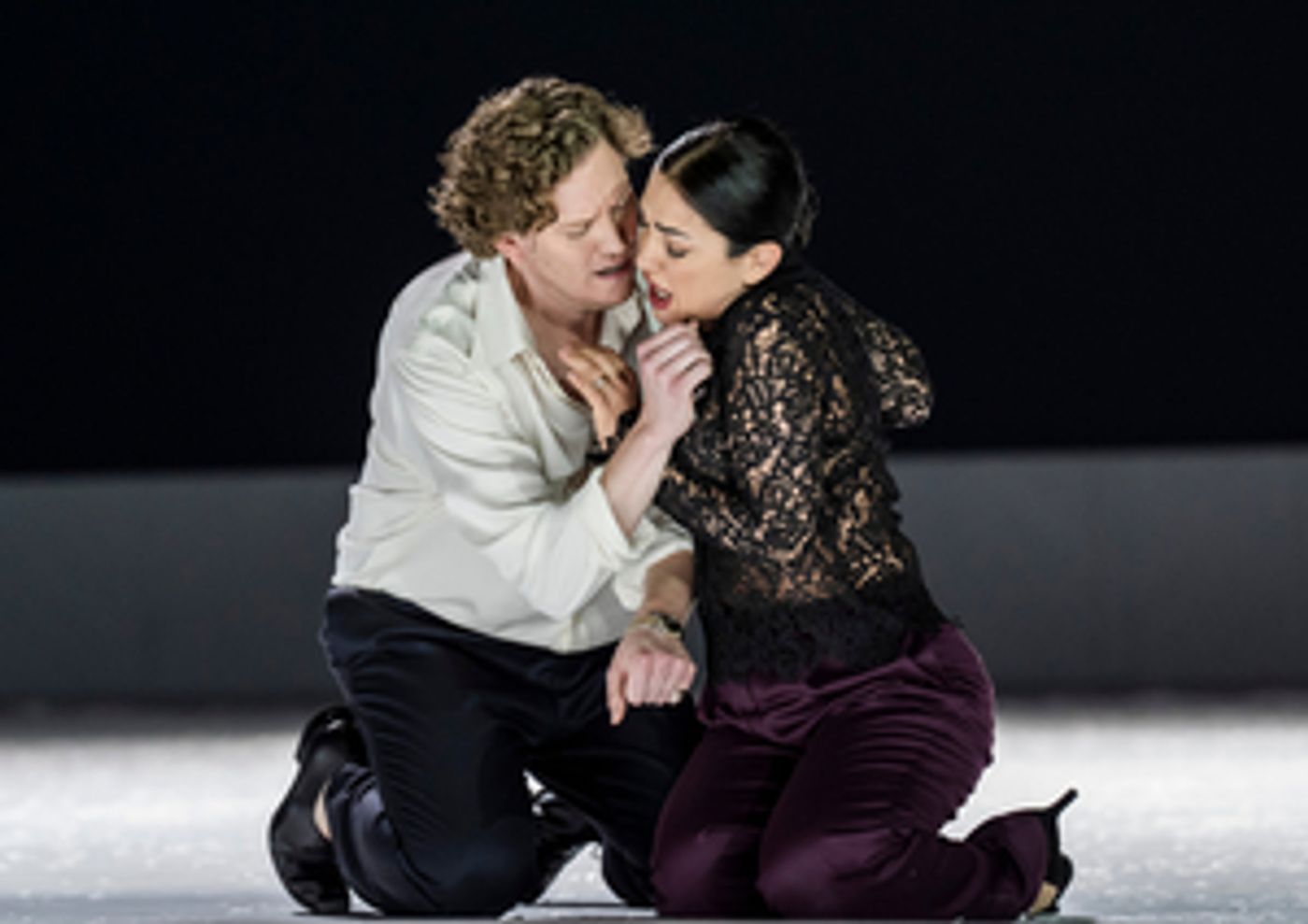Review: EUGENE ONEGIN, Royal Ballet And Opera
A powerful production.

![]() Deservedly still Tchaikovsky’s most celebrated opera, Eugene Onegin astounds with angelic music that never ceases to amaze. This production by Ted Huffman, in his main stage Royal Opera debut, features a stellar cast with Kristina Mkhitaryan as Tatyana, Gordon Bintner as Onegin, and several choices that, while divisive, raise intriguing questions.
Deservedly still Tchaikovsky’s most celebrated opera, Eugene Onegin astounds with angelic music that never ceases to amaze. This production by Ted Huffman, in his main stage Royal Opera debut, features a stellar cast with Kristina Mkhitaryan as Tatyana, Gordon Bintner as Onegin, and several choices that, while divisive, raise intriguing questions.
This is an unmistakably bleak production. Hyemi Shin’s set features a large, open stage with white and black colours dominating the space. Chairs, tables and other props are brought on the stage sparingly, but otherwise it’s fairly minimalist; a neat snow effect at the duel between Lensky (Liparit Avetisyan) conjures a sense of Russian winter, and Astrid Klein’s costumes are evocative without being too overbearing. But it’s generally in the lighting by D. M. Wood that a lot of the magic happens: the broad open space allows the light to create effective moods as required, reinforcing the generally sombre nature of the opera.
Indeed, the largely empty stage works wonders in several scenes. Particularly at the duel the staging enforces a sense of inevitability and gravitas that carries throughout the scene, not least affected by Avetisyan’s remarkable rendition of his aria. Conversely, the scenes with more joviality, such as the ballroom scene or the dance, are infused with an uncanny undercurrent, almost as though much of this production is supposed to be from Onegin’s point of view in particular: a broody, cynical Byronic hero, he views the world in a much darker light than Tatyana, Olga (Avery Amereau) and Lensky do at the outset.

Fitting, then, that Binter’s Onegin represents just that. Tall, dashing, dangerous, with a range of subtle expressions with a powerful voice, his is a stunning performance that oozes Onegin’s pride and disillusionment with society, and later his suffering as he realises his feelings for Tatyana. Mkhitaryan’s Tatyana, meanwhile, captures her character development perfectly. Both the introverted, shy Tatyana from the opera and the later incarnation who sacrificed desire for stability are represented stupendously well with some cunning acting and a beautiful voice that melts the heart, specifically during the letter scene.
Considering how accurately the main plot is represented, however, it seems all the more baffling at the creative decision to alter the outcome of the duel so that Onegin refuses to fight but Lensky ends up shooting himself. While this decision may heighten the sense of Lensky’s despair and provide him with some form of tragic autonomy, it does undermine the degree to which Onegin’s pride is part of the cause of the opera’s tragedy. The duel is pivotal in highlighting Onegin’s arrogance, setting up the crushing guilt he faces later; having Lensky take his own life risks softening Onegin’s culpability.
Disagreements over creative decisions aside, however, this is still a powerful production of Eugene Onegin that is especially excellent to listen to. Conductor Henrik Nánási and the Orchestra of the Royal Opera House deliver a sublime performance, making this an easy recommendation.
Eugene Onegin is at the Royal Ballet And Opera until 14 October 2024.
Photo Credits: Tristram Kenton
Reader Reviews

Videos

